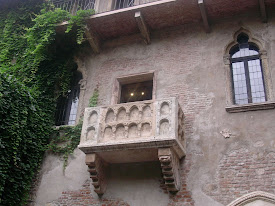Tommaso Campanella – poet and philosopher
Friar had utopian dream to banish poverty
Writer Tommaso Campanella was born on this day in 1568 in Stilo in Reggio Calabria and was baptised Giovanni Domenico Campanella. As a friar who was also a philosopher, Campanella tried to reconcile humanism with Roman Catholicism. He is best remembered for his work, La città del sole (The City of the Sun), written in 1602 which was about a utopian commonwealth where every man’s work contributed to the good of the community and there was no poverty. The son of a poor cobbler, Campanella was an infant prodigy who joined the Dominican order before he was 15, taking the name Fra Tommaso. He was influenced by the work of philosopher Bernardino Telesio, who opposed Aristotle’s ideas, and he became interested in astrology, which constantly featured in his writing. After Campanella published his own work, Philosophy Demonstrated by the Senses, which stressed the need for human experience as a basis for philosophy, he was arrested, tried and imprisoned briefly for heresy. Campanella then became interested in pragmatism and the idea of political reform, moved deeply by the poverty of the people living in his native Stilo. Read more…
_______________________________________
Francesca Porcellato - Paralympian
Life of sporting excellence born of horrific accident
Francesca Porcellato, one of Italy’s most enduring Paralympians, was born on this day in 1970 in Castelfranco Veneto. She has competed in seven summer Paralympics as an athlete and cyclist and three winter Paralympics in cross-country skiing, winning a total of 14 medals, including three golds. At the 2010 Winter Paralympics in Vancouver, Canada, she was flag-bearer for the Italian team. She is also a prolific wheelchair marathon competitor, sharing with America’s Tatyana McFadden the distinction of having won the London Marathon wheelchair event four times. As recently as 2017, at the age of 47, Francesca won gold in the H3 event at the Paracycling road world championships in Pietermaritzburg in South Africa. The H3 category – for paraplegic, tetraplegic or amputees unable to ride a standard bicycle – involves competitors riding in a lying position, using their arms to turn the wheels. Francesca was the defending champion in the H3 after winning gold at the 2015 championships in Nottwil in Switzerland, where she also took gold in the time trial. Read more…
______________________________________
Mario Scelba – Prime Minister
Tough interior minister worked for social and economic reform
Mario Scelba, a Christian Democrat who would become Italy’s 33rd Prime Minister, was born on this day in 1901 in Caltagirone in Sicily. He earned the nickname ‘the Iron Sicilian’ while serving as Interior Minister because of his repression of both left-wing protests and Neo-Fascist rallies. Scelba had been born into a poor family that worked on land owned by the priest Don Luigi Sturzo, who was to become one of the founders of the Italian People’s Party (PPI). As his godfather, Sturzo paid for Scelba to study law in Rome. When the Fascists suppressed the PPI and forced Sturzo into exile, Scelba remained in Rome as his agent. He wrote for the underground newspaper, Il Popolo, during the Second World War. He was once arrested by the Germans but freed after three days as he was considered to be ‘a worthless catch’. After Rome’s liberation by the Allied Forces, Scelba joined the new Christian Democrats, reborn out of the PPI. The Christian Democrats started organising post-Fascist Italy in competition with the centre and left parties, but also at times in coalition with them. Read more…
____________________________________
Giacomo Zabarella – philosopher
Scholar devoted his life to explaining Aristotle’s ideas
The leading representative of Renaissance Aristotelianism, Giacomo Zabarella, was born on this day in 1533 in Padua in the Veneto. His ability to translate ancient Greek enabled him to understand the original texts written by Aristotle and he spent most of his life presenting what he considered to be the true meaning of the philosopher’s ideas. He had been born into a noble Paduan family who arranged for him to receive a humanist education. After entering the University of Padua he was taught by Francesco Robortello in the humanities, Bernardino Tomitano in logic, Marcantonio Genua in physics and metaphysics and Pietro Catena in mathematics. All were followers of Aristotle. Zabarella obtained a Doctorate in Philosophy from the university in 1553 and was offered the Chair of Logic in 1564. He was promoted to the first extraordinary chair of natural philosophy in 1577. Zabarella became well known for his writings on logic and methodology and spent his entire teaching career at the University of Padua. As an orthodox Aristotelian, he sought to defend the scientific status of theoretical natural philosophy. Read more…




.png)

.jpg)
.jpg)
.jpg)
.jpg)



.jpg)



